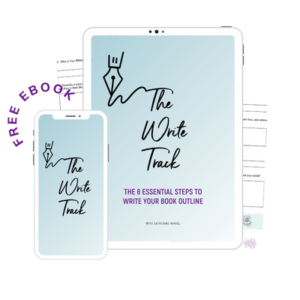If you are an aspiring writer, you may already be familiar with the long, solitary journey of penning down your ideas. There are days when words flow freely, but there are times when even a single coherent sentence seems like an uphill task. That’s where a personal writing coach can make all the difference.
While it’s a beautiful and enriching process, writing can also be challenging. Many writers need help with roadblocks in their writing journey, be it issues with structure, clarity, or even the daunting task of starting to write at all. This is where a writing coach can play a crucial role.
A personal writing coach is akin to a personal trainer at the gym – but instead of helping you with your physical fitness, they assist you with your writing fitness. Their primary role is to guide, motivate, and offer practical advice to improve your writing skills. They are your sounding board, source of constructive feedback, and partner in your writing journey.
One of the essential aspects of a writing coach’s job is to understand your writing goals and help you navigate the writing process effectively. Whether you aim to draft short stories, create engaging children’s books, or even become a bestselling author, a writing coach can assist you in your unique path.
There are many writing coaches, each with their coaching style, but a great writing coach goes beyond teaching the writing craft. They help mold your writing style and support you through your entire process, from drafting your first piece to celebrating your publishing success.
The Role of a Writing Coach
A writing coach’s work at its core revolves around supporting your creative writing endeavours. The coach works closely with you to provide detailed feedback, suggestions for improvement, and encouragement to keep you moving forward. They help you navigate the publishing industry’s complex world and provide insights into how to connect with the writing community.
Writing coaches work with you one-on-one, offering personalized coaching services to cater to your specific needs and challenges. For instance, a book writing coach specializes in the book publishing process, guiding you from idea generation to manuscript development and even assisting with the book proposal to send to literary agents.
Writing coaches have an in-depth understanding of the publishing industry, often having extensive experience as professional writers, developmental editors, or even publishing industry professionals themselves. Therefore, they are well-equipped to guide intricate processes such as developmental editing, ensuring your work is refined and ready for the publishing world.
Many writing coaches offer coaching packages, from one-off coaching calls to ongoing support throughout the writing process. For instance, a private writing coach may offer long-term coaching involving regular calls, line-by-line feedback on your writing, and emotional support during those challenging writing periods.
But how does one find a writing coach who fits their unique needs and goals? What are the qualities that make a great writing coach? In the following sections, we’ll dive into these questions, helping you search for the right writing coach.
Whether you are an aspiring novelist, an established author looking to hone your craft, or a business professional aiming to improve your writing skills, working with a writing coach can be a rewarding and transformative experience.
Choosing a Great Writing Coach
Choosing a writing coach is a critical step in your writing journey. A good coach can inspire, motivate, and guide you toward your writing goals. Great writing coaches not only help improve your writing skills but also empower you to become more confident in your writing abilities.
Before you start searching for your potential writing coach, it’s essential to understand what you’re looking for. This process begins by identifying your writing challenges and goals. Are you struggling with plot development in your novel? Are you seeking guidance on publishing your work in literary journals? Or perhaps you need help crafting a compelling book proposal? Your specific needs will guide you toward the right writing coach.
What Makes a Great Writing Coach
One of the key characteristics of a great writing coach is their proven track record. This could be in the form of their own published works, successful clients who have achieved publishing success, or extensive experience in the publishing industry. They should have a deep understanding of the literary world, the publishing process, and the intricacies of the writing craft.
Another crucial factor to consider is the coach’s understanding of the creative writing process. The best book writing coaches and private writing coaches have knowledge and experience in dealing with the ups and downs of writing. They have gone through the process of starting from a blank page, crafting a first draft, and going through rounds of revisions. This experience equips them to provide practical advice and emotional support throughout their writing journey.
Coaching style is another essential aspect to consider when choosing a writing coach. Do you prefer a direct and straightforward coach offering line-by-line feedback? Or do you prefer a coach who offers more general, overarching advice about your writing style and structure? Do you need someone who will challenge you, or do you need someone who is more nurturing and supportive? Understanding your needs and preferences will help you find a writing coach who aligns with your style and goals.
Communication is a vital part of the coaching process. Great writing coaches communicate effectively, providing clear, constructive feedback that helps improve your writing. They are also good listeners, understanding your concerns and addressing them accordingly.
Finding Your Writing Coach
With the internet’s advent, finding a writing coach is easier than ever. There are numerous platforms where you can see profiles of writing coaches, complete with their qualifications, specialties, testimonials from previous clients, and coaching style. Look for a coach specializing in your area of interest – children’s books, short stories, novels, or non-fiction.
Be bold and ask questions when searching for a potential coach. Most coaches are open to initial consultations where you can discuss your writing goals, ask about their coaching process, and get a sense of their coaching style. This is also an excellent opportunity to ask about their experience, knowledge of the publishing industry, and successes with previous clients.
Remember, the relationship between a writer and their writing coach is deeply personal. Choose someone with whom you feel comfortable and trust to guide you through your writing journey.
Understanding How Writing Coaches Work
Understanding how writing coaches work becomes crucial as you venture deeper into your writing journey. Writing coaches are professionals who provide guidance, expertise, and support to writers at all stages of their writing process. But what does the coaching process entail? What can you expect during coaching sessions? Let’s find out.
The Coaching Process
Every writing coach has a unique coaching approach, but certain common elements are present in most coaching relationships. Firstly, the coach will typically start with an assessment phase. They will get to know you, your writing style, your writing goals, and any challenges you face. This might involve reviewing samples of your writing or discussing your aspirations as a writer.
Next, the writing coach will work with you to establish a plan. This could include setting specific writing goals, creating a writing schedule, or outlining steps to improve your writing skills. This plan serves as a roadmap for your writing journey.
Once the plan is in place, you’ll move into the coaching phase. This can involve a combination of coaching calls, email exchanges, and feedback sessions. Depending on the coach and the package you choose, you might receive line-by-line feedback on your work, general feedback on your writing style and structure, or advice on specific challenges you’re facing.
The best part about the coaching process is that it’s highly flexible. Your writing coach can adapt their approach based on your progress and changing needs. For example, if you’re working with a book writing coach and you finish your first draft, your coach can shift their focus from crafting the story to refining the manuscript and preparing it for the publishing industry.
How Writing Coaches Help Writers
Writing coaches can help writers in many ways. They can assist in improving writing skills, provide insights into the publishing industry, offer emotional support during challenging times, and even help writers connect with the broader writing community.
Firstly, writing coaches can help you hone your writing skills. Through their expertise and feedback, they can help you understand the strengths and weaknesses of your writing. This understanding can improve storytelling, structure, character development, and a more polished writing style.
Writing coaches can also provide insights into the publishing industry. Whether you’re looking for advice on crafting a compelling book proposal or seeking guidance on dealing with literary agents, a writing coach with a background in the publishing industry can be invaluable.
Many writers find the emotional support from writing coaches to be equally valuable as practical advice. Writing can be a solitary journey, and having a coach who understands your struggles, celebrates your victories, and encourages you through the hard times can make all the difference.
Finally, writing coaches can help you connect with other writers and the broader writing community. They can introduce you to writing groups, recommend literary journals to submit your work, or even help you navigate writing conferences.
Making the Most of Your Coaching Sessions
Coaching sessions are a golden opportunity to learn, grow, and improve as a writer. To make the most of these sessions, it’s important to come prepared. Have your questions ready and be open to feedback. Remember, constructive criticism is a vital part of the learning process.
Make sure to incorporate the feedback you receive from your coach into your writing. This will improve not only your current work but also your future projects. Be proactive in your relationship with your coach. The more effort you put into your coaching sessions, the more you’ll get out of them.
Understanding the Cost of Writing Coaches
One of the crucial questions that arise when considering hiring a writing coach is the cost. How much do writing coaches charge? Is hiring a writing coach a worthwhile investment? Let’s delve into these questions.
What Does a Writing Coach Charge?
Writing coaches’ charges can vary widely based on several factors: their experience, their specialization, their coaching style, the duration of the coaching relationship, and the specific services included in their coaching package. Some writing coaches charge hourly rates, while others offer packages that cover a specific duration or project.
For example, a private writing coach who offers a comprehensive coaching package – including regular coaching calls, line-by-line feedback on your manuscript, and support throughout the entire process – might charge more than a writing coach who offers a simpler package.
Before you commit to a coaching package, it’s essential to understand what’s included. Ask potential coaches about the specifics: How often will you meet? What kind of feedback will they provide? Are there additional services, like help with a book proposal or advice on navigating the publishing world?
Is a Writing Coach Worth the Investment?
While the cost of hiring a writing coach can seem high, it’s important to consider the value that a good writing coach can bring to your writing journey. The benefits of working with a writing coach extend far beyond the cost.
Writing coaches provide valuable feedback, help you improve your writing skills, provide insights into the publishing industry, and offer emotional support. They can help you save time by guiding you through the writing process more efficiently, helping you avoid common pitfalls, and providing targeted advice to improve your work.
Hiring a writing coach can also be critical to achieving your writing goals. Whether you aspire to become a bestselling author or want to become a more effective writer, the guidance and support from a writing coach can make a significant difference.
It’s also worth considering that investing in a writing coach is investing in yourself. It affirms your commitment to your writing journey and a statement of belief in your potential.
Qualifications to Look For in a Writing Coach
When searching for a writing coach, one of the key considerations should be their qualifications. A qualified coach will not only have the experience and knowledge to guide you effectively but will also give you the confidence that you’re in capable hands. So, what qualifications should you look for in a potential writing coach?
Writing Experience
The most fundamental qualification for any writing coach is their writing experience. The coach you choose should be a writer – someone who understands the writing process’s intricacies, the creative journey’s highs, and lows, and the thrill of seeing a project through to completion.
Look for a coach who has published work. This could be in books, articles, short stories, or pieces in reputable literary journals. A coach who has successfully navigated the publishing process themselves will also be in an excellent position to guide you through it.
Coaching Experience
Coaching is a skill in itself, separate from writing. A great writer isn’t necessarily a great coach. Good coaches have experience coaching other writers and have developed effective strategies for helping their clients improve their writing skills and reach their writing goals.
When looking at a coach’s qualifications, pay attention to how long they’ve been coaching and what their clients say about them. Client testimonials can give insights into a coach’s effectiveness and style.
Industry Knowledge
A well-qualified writing coach should have a strong understanding of the publishing industry. This knowledge is invaluable in guiding you through getting your work published.
Many writing coaches have backgrounds in publishing – they may have worked as literary agents, editors, or publishing consultants. Such coaches can provide insights into the industry, advise you on crafting book proposals, guide you through finding and working with literary agents, and help you understand the market for your work.
Specialized Expertise
Depending on your specific writing goals, look for a coach with specialized expertise. For example, if you’re writing a children’s book, you’ll want a coach who understands the specific requirements of this genre. If you’re writing a memoir, a coach with expertise in personal narratives would be a good fit.
Frequently Asked Questions
1. How much does a writing coach cost?
The cost of a writing coach can vary significantly depending on the coach’s experience, area of expertise, coaching style, and the services included in their coaching package. Some coaches charge hourly rates, while others offer packages for a specific duration or project. A comprehensive coaching package – including regular coaching calls, detailed feedback on your manuscript, and support throughout the writing process – might cost more than a simpler package. Before committing to a coach, ensure you understand what’s included in their fees and that it aligns with your needs and budget.
2. What does a writing coach do?
A writing coach is a professional who guides, supports, and advises writers at all stages of their writing journey. They can help writers improve their writing skills, provide feedback, and guide them through planning, writing, editing, and revising their work. Writing coaches can also provide valuable insights into the publishing industry, helping writers understand how to publish their work. Furthermore, a writing coach offers emotional support, acting as a sounding board and providing encouragement during the sometimes challenging writing process.
3. Are writing coaches worth it?
The value of a writing coach can be immense. Their feedback, advice, and support can help writers improve their skills, complete their projects more efficiently, and navigate the complex publishing world. They can save writers from common pitfalls, provide emotional support during challenging times, and guide them toward achieving their writing goals. While hiring a writing coach is an investment, it’s often one that pays off in terms of developing your writing craft and progressing toward your writing goals.
Use your Voice, Make an Impact.
Catherine x

Email: catherine@catherinenikkel.com
Resources
What type of Content Creator are you? Take the Quiz! – 4 different types of creators. Which one are you?
Need help to tell your story in your own voice? Let’s make it happen. Schedule a consultation with me here






